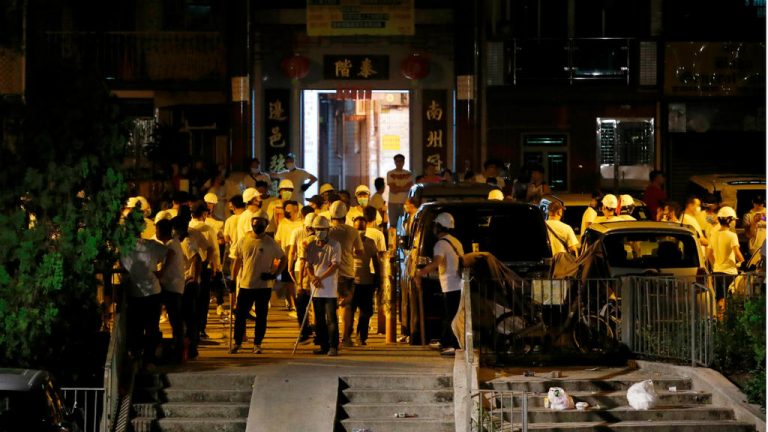
Hong Kong’s opposition Democratic Party is investigating attacks by suspected triad gangsters on train passengers on Sunday, after a night of violence opened new fronts in the political crisis now deepening across the city.
Screams rang out when men, clad in white t-shirts and some armed with poles, flooded into the rural Yuen Long station and stormed a train, attacking passengers, according to footage taken by commuters and Democratic Party lawmaker Lam Cheuk-ting.
Some passengers had been at an anti-government march and the attack came after several thousand activists surrounded China’s representative office in the city, later clashing with police.
Lam, who was injured in the attack, said he was angry about a slow police response after he alerted them to the trouble, government-funded broadcaster RTHK reported.
Lam said it took police more than an hour to arrive after he alerted them and they had failed to protect the public, allowing the triads to run rampant. The party is now investigating.
“Is Hong Kong now allowing triads to do what they want, beating up people on the street with weapons?,” he asked reporters.
Police said early on Monday they had not made any arrests at the station or during a follow-up search of a nearby village but were still investigating.
Yau Nai-keung, Yuen Long assistant district police commander, told reporters that an initial police patrol had to wait for more reinforcements given a situation involving more than 100 people.
Groups of men in white were seen by eye-witnesses with poles and bamboo staves at a nearby village but Yau said police saw no weapons when they arrived.
“We can’t say you have a problem because you are dressed in white and we have to arrest you. We will treat them fairly no matter which camp they are in,” Yau said.
Hong Kong has been rocked by a series of sometimes violent protests for more than two months in its most serious crisis since Britain handed the Asian financial hub back to Chinese rule in 1997.
Protesters are demanding the full withdrawal of a bill to allow people to be extradited to mainland China for trial, where the courts are controlled by the Communist Party, fearing it would undermine Hong Kong’s judicial independence.
They are also demanding independent inquiries into the use of police force against protesters.





